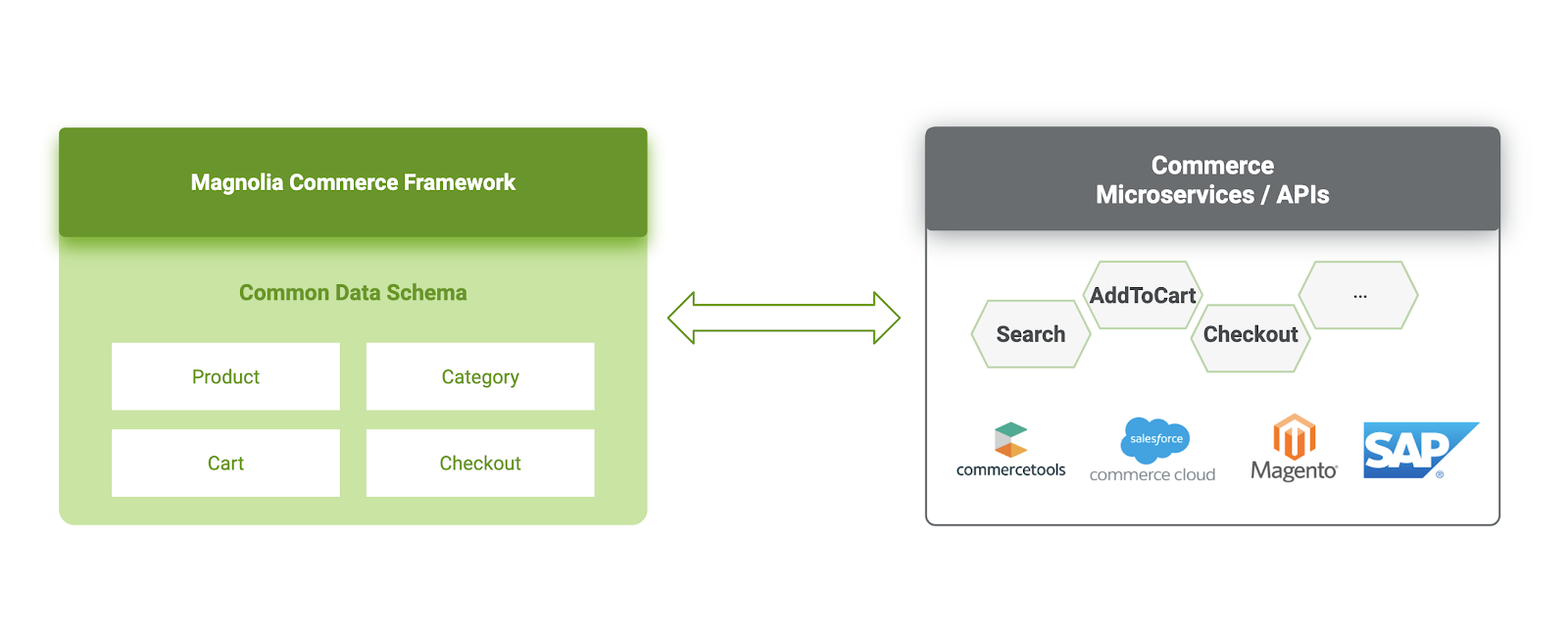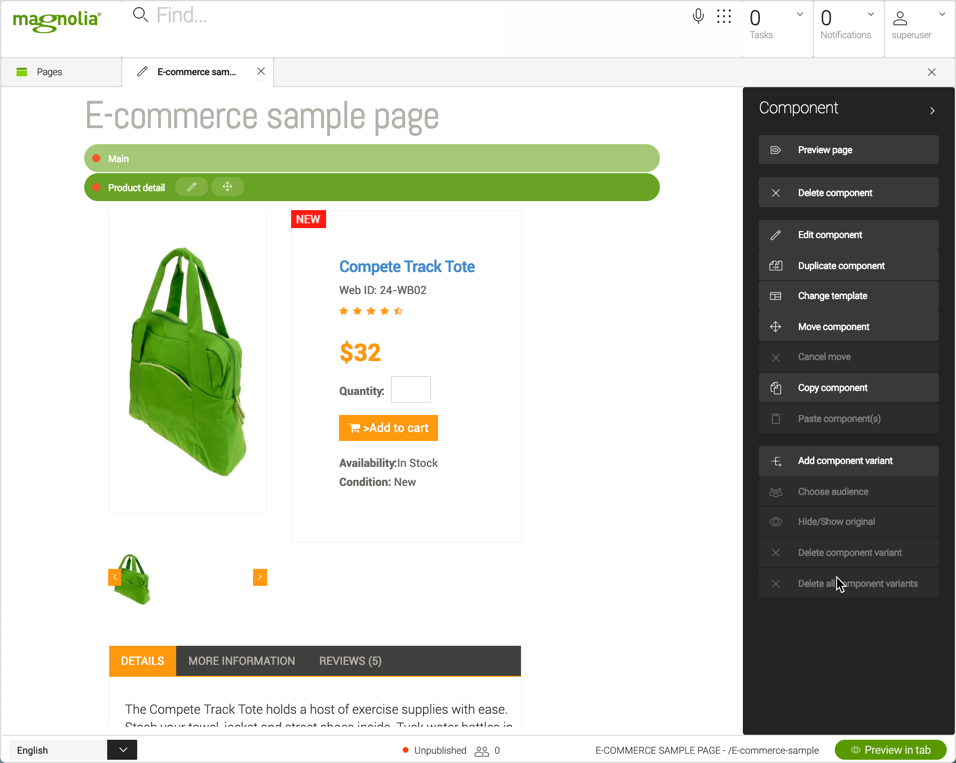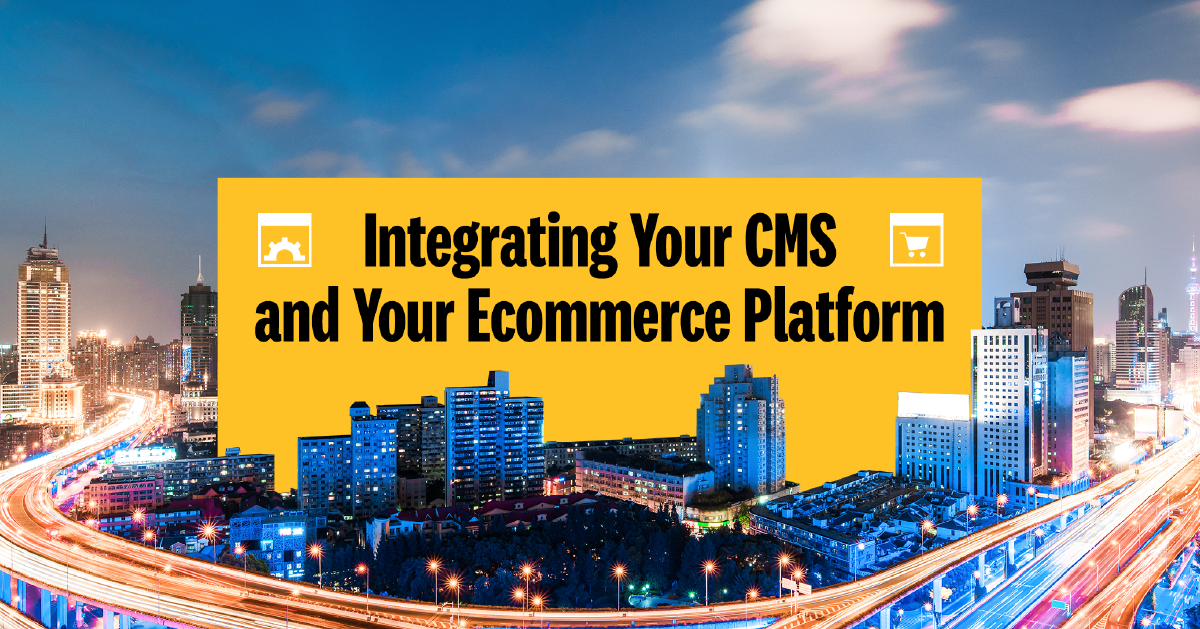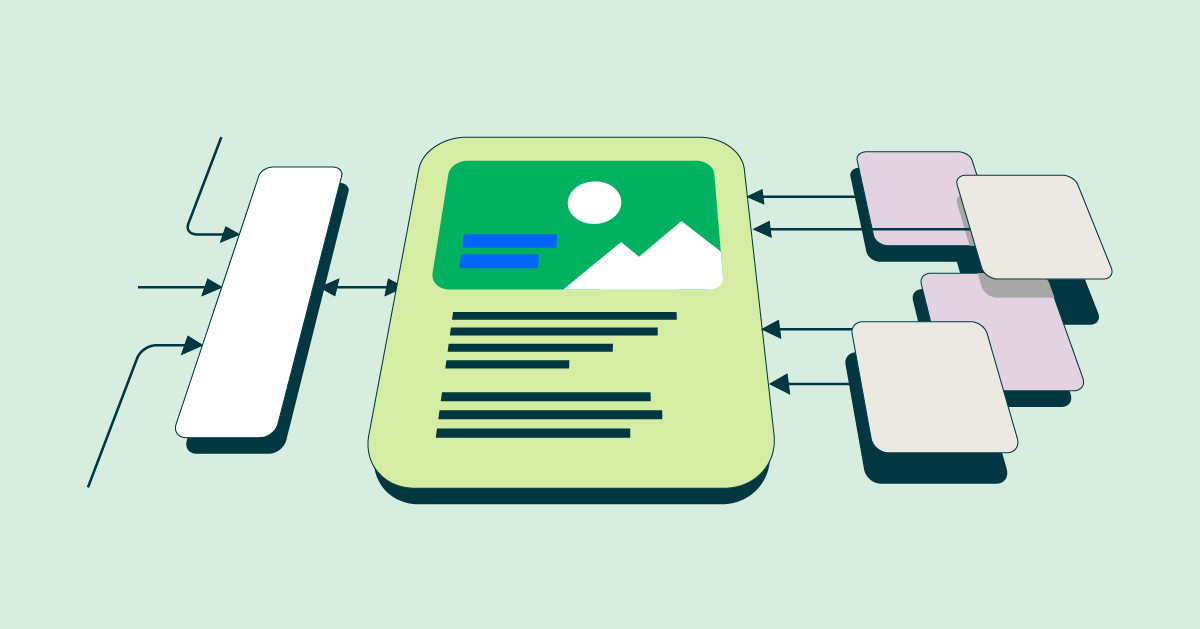- Nov. 11, 2021
- --
Integrieren Sie Ihr CMS und Ihre E-Commerce-Plattform
Entdecken Sie, wie Sie durch Verbindungen mit E-Commerce-Systemen das Beste aus Ihren Online-Marken herausholen können.
Magnolia in Aktion
Unser Expertenteam zeigt Ihnen live, was Magnolia für Sie leisten kann.
Jetzt Demo buchenDer Aufbau eines modernen Technologiepakets ist heute keine Einheitsgröße, die für alle passt. Jede Marke hat andere Kunden, Ansätze und Anforderungen an die ihr zur Verfügung stehende Technologie. Vor allem Marketing-Technologie-Stacks können aufgrund der Fülle der verfügbaren Optionen kompliziert sein.
Der erste Punkt, an dem Sie ansetzen sollten, ist das CMS, das Herzstück Ihres technischen Marketing-Stacks. Traditionelle Plattformen reichen aufgrund ihrer Einschränkungen in der heutigen dynamischen Inhaltswelt nicht mehr aus. Ein hybrides Headless-System hilft Ihnen, das Beste aus einer ständig wachsenden Anzahl von Kanälen und unterschiedlichen Arten von Inhalten herauszuholen, aber Marken müssen sich auf einen Best-of-Breed-Ansatz und die Leistungsfähigkeit nicht nur eines CMS, sondern einer Digital Experience Platform (DXP) konzentrieren.
Ein modernes DXP kann nicht nur Ihre Inhalte speichern und verwalten, sondern auch durch zahlreiche Erweiterungen seine Fähigkeiten weiter ausbauen. Deshalb bieten wir bei Magnolia nicht nur ein hybrid-headless CMS, sondern auch eine Best-of-Breed-Philosophie und Connector Packs, die die DX-Plattform mit anderen digitalen Kernsystemen wie Marketing Automation, Analytics, Digital Asset Management und Commerce(Magnolia Marketplace) verbinden.
Was ist ein Ecommerce CMS?
Das Wachstum von Omnichannel, bei dem die Verbraucher über alle möglichen Geräte mit Marken in Verbindung treten, bedeutet, dass E-Commerce jetzt eine Voraussetzung und kein Luxus mehr ist.
Technology has also adapted to further improve the online purchasing process with the help of augmented reality (AR) to enhance the shopping experience and voice search capabilities to make it easier to find things on the go.
Brands that hope to keep pace with the rest of the world need to adopt an ecommerce strategy and fast. The best place to start is by targeting the technology stack currently in use, and the answers lie in how commerce connects with content. This also applies to B2B companies looking for a CMS for ecommerce.
An ecommerce CMS helps manage the content for an ecommerce site. This includes product descriptions, page layouts, promotions, and campaigns. It also helps to optimize content for various channels.
Thinking of commerce as a content initiative is important since content influences how much trust buyers place in a brand and how they make their buying decisions. Enterprises aren’t immune to this need to consider their B2B CMS and ecommerce platform as a pair.
Web content is stored, managed, and distributed with the help of a CMS or DXP to a brand website and other channels such as smart speakers, mobile phones, or other devices thanks to headless capabilities. Just as the CMS has evolved to become headless, it has spawned a new wave of commerce options to match this changing world, namely headless commerce.
With a headless commerce solution and an ecommerce CMS, the ecommerce and content management backend is decoupled from the front-end presentation layer. Using a CMS, brands can manage the backend - creating, editing, and publishing content - while the content then gets displayed on a website, a mobile device, or on another IoT-enabled device.
Headless commerce allows for the smooth integration of other channels that have yet to see widespread use or be created at all. For instance, customers will eventually gain the ability to order food using the devices in their kitchen and have an assortment of brands to choose from.
As companies consider ways in which users will make purchases now and in the future, an ecommerce headless CMS can have a tremendous impact on the user experience. Buyers today are not just looking for convenience when they decide to purchase; they’re also looking for personalization. Even in sectors where companies rely on other businesses as clients, personalization still matters, meaning that organizations need to consider the impact of their B2B ecommerce CMS.
Brands that leverage personalization as part of their ecommerce offerings are likely to reap the benefits of increased conversions and lower cart abandonment rates. To do this effectively, they will need to count on a best-of-breed DXP that is built for dynamic digital experiences.
Lesen Sie mehr darüber: Was ist Personalisierung im E-Commerce?
Magnolia Commerce Connector Pack
Mit dem Commerce Connector Pack von Magnolia können Sie Ihr E-Commerce-Erlebnis sowohl für Ihr Team als auch für Ihre Kunden endlich verbessern.

Mit dem Commerce Connector Pack von Magnolia können Sie Ihr E-Commerce-Erlebnis sowohl für Ihr Team als auch für Ihre Kunden endlich verbessern.
E-Commerce-Plattformen geben Vermarktern oder technisch nicht versierten Nutzern in der Regel nicht die notwendigen Werkzeuge an die Hand, um Inhalte so zu bearbeiten und anzupassen, wie sie es wünschen.
Oft fehlen die Optionen für eine stärkere Ausrichtung auf bestimmte Segmente, die Wiederverwendung von Inhalten für mehr als nur eine Website und Vorlagen, die die Arbeit erleichtern. Die Erweiterung von E-Commerce-Software mit weiteren Tools zur Steigerung der Funktionalität ist in der Regel ein kostspieliger und zeitaufwändiger Prozess. Stattdessen braucht Ihr Unternehmen eine einfache Möglichkeit, Ihr CMS und Ihre E-Commerce-Plattform miteinander zu verbinden.
Magnolia gibt die Macht zurück in die Hände der Vermarkter, indem es die Werkzeuge zur Verfügung stellt, mit denen die Ersteller von Inhalten die von ihnen benötigten Bearbeitungen und Anpassungen leicht vornehmen können, während die Funktionalität von Einkaufswagen und anderen E-Commerce-Anforderungen erhalten bleibt.
Das Commerce Connector Pack und die dazugehörigen Konnektoren bieten Unternehmen die Möglichkeit, Inhalte und Handel zu kombinieren, indem sie Ihr CMS und Ihre E-Commerce-Plattform miteinander verbinden.
Kosten reduzieren
Die Integration einer E-Commerce-Plattform und eines CMS kann ein teurer und langwieriger Prozess sein, wenn eine Menge benutzerdefinierter Code zu bewältigen ist.
Mit einem Commerce-Cloud-CMS wie Magnolia können Backend-Entwickler dank mehrerer Konnektoren für Plattformen wie Salesforce Commerce Cloud, SAP Commerce, Adobe Commerce und commercetools von schnelleren Integrationszeiten profitieren. Für die Anbindung anderer E-Commerce-Systeme ist nur eine geringe Menge an Java-Code erforderlich.
Front-End-Entwickler können von Magnolias APIs profitieren, die Templates für einen einfacheren Zugriff auf Produkte aus externen E-Commerce-Quellen enthalten.
Erlebnisse vereinheitlichen
Magnolia bildet eine Brücke zwischen dem virtuellen Warenkorb auf Ihrer Website und dem Backend Ihrer E-Commerce-Lösung.
Dank der Leistungsfähigkeit von REST-APIs kann Magnolia mit der E-Commerce-Plattform kommunizieren und das digitale Erlebnis vereinheitlichen, so dass der Kunde den gesamten Checkout-Prozess durchlaufen und Aktualisierungen erhalten kann, ohne zu einem anderen Einkaufswagen zu wechseln.
Beschränkungen überwinden
Ersteller von Inhalten müssen sich nicht mehr darum sorgen, dass sie Produkte nicht finden oder einen Produktkatalog umständlich durchsuchen müssen. Mit dem Commerce Connector Pack können Vermarkter alles, was sie brauchen, leicht finden und dann überzeugende Inhalte zu Ihrer Marke und Ihren Produkten erstellen.
Da alles an einem Ort vernetzt ist, können sie auch auf die Informationen zurückgreifen, die sie benötigen, um datengestützte Entscheidungen zu treffen und die richtigen Inhalte zur richtigen Zeit an den richtigen Kunden zu liefern.
Commerce Connector Pack product brief
Overcome the CMS limitations of your e-commerce system and accelerate integration with Magnolia's Commerce Connector Pack.
Jetzt herunterladenWie funktioniert das Commerce Connector Pack?
Let’s take an example. You may have a large grocery retail web presence. Your product department manages the master data for all 30k product SKUs from 200+ suppliers in a mammoth legacy product catalog, which also stores different prices for several countries. You manage the experience in Magnolia: you create an intuitive set of top-level pages for each of your departments such as bakery, meat, drinks, pets, etc.
Magnolia breaks the content-commerce silo by giving a single access point to your digital teams. With Magnolia, they can:
Legen Sie fest
- welche Produkt-SKUs vorgestellt werden sollen
- indem Sie einen Link direkt zu den Produkten in Ihrem Produktkatalog erstellen.
Filtern Sie nach Produkten und Kategorien
- und erstellen Sie automatisch passende Erlebnisse
- z. B. Landing Pages mit Produkten
- die Ihrem Filter entsprechen.
Reichern Sie Produktinhalte mit Marketingtexten direkt im CMS an.
Magnolias Commerce-Integrations-Framework, das die Grundlage unseres Commerce Connector Packs bildet, macht all dies möglich, indem es Folgendes bietet:
Integrationen in führende E-Commerce-Systeme

Magnolia gibt Ihnen die Freiheit, die E-Commerce-Lösung zu wählen, die für Ihr Unternehmen am besten geeignet ist, und hat die Integration reibungslos und unkompliziert gestaltet. Das Commerce-Integrations-Framework verfügt über Konnektoren zu den folgenden Drittanbieterlösungen:
SAP Commerce Cloud (ehemals Hybris)
Adobe Commerce (ehemals Magento)
Mit der REST-API können Sie Daten zu Produkten und Kategorien aus diesen Drittsystemen abrufen, wodurch sie sich für Headless-Implementierungen eignet.
Intuitive Arbeitsabläufe und einheitliche Benutzererfahrung über alle Integrationen hinweg

Das Commerce-Integrations-Framework beschleunigt nicht nur die Entwicklung, sondern bringt Integrationen auch in den Bereich der Autorenoberfläche.
Ersteller von Inhalten können problemlos die benötigten Informationen von externen E-Commerce-Lösungen abrufen und mit E-Commerce-Inhalten arbeiten, als wären es native Magnolia-Inhalte.
Sie können Produkte in der Suchleiste finden, den Produktkatalog durchblättern und die Produktdetails in Magnolia einsehen. Kataloge, Kategorien und deren Produkte sind in Magnolia durchsuchbar.
Darüber hinaus können sie Produkte wie jeden anderen wiederverwendbaren Inhalt mit Hilfe von Templates in Seiten oder Komponenten platzieren und überzeugende Einkaufserlebnisse schaffen, die sich an der Geschichte orientieren.
Kombinieren Sie Inhalt und Handel mit Magnolia
Magnolia bietet ein erstklassiges DXP für die Erstellung digitaler Erlebnisse, die Ihre Kunden verführen und begeistern. Mit dem Commerce Connector Pack werden Entwickler und Marketer entlastet, sodass sie gemeinsam die richtigen Erlebnisse für die Customer Journey schaffen können.









